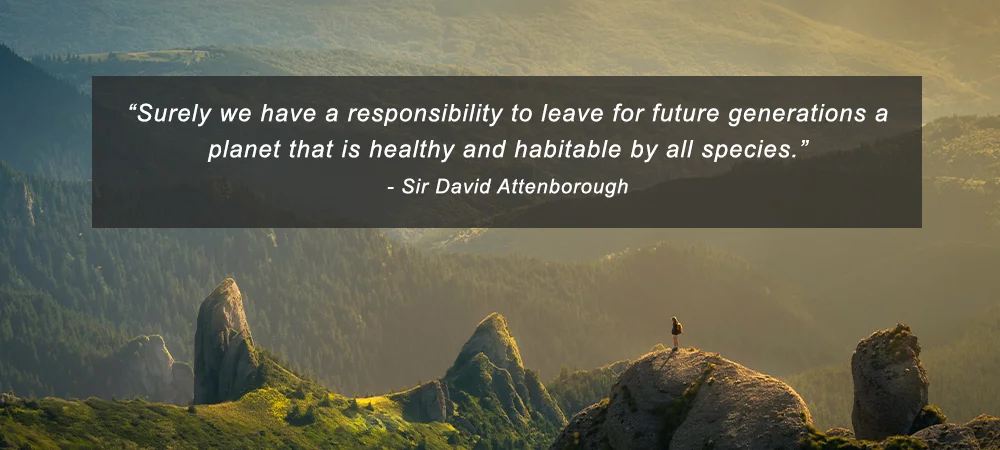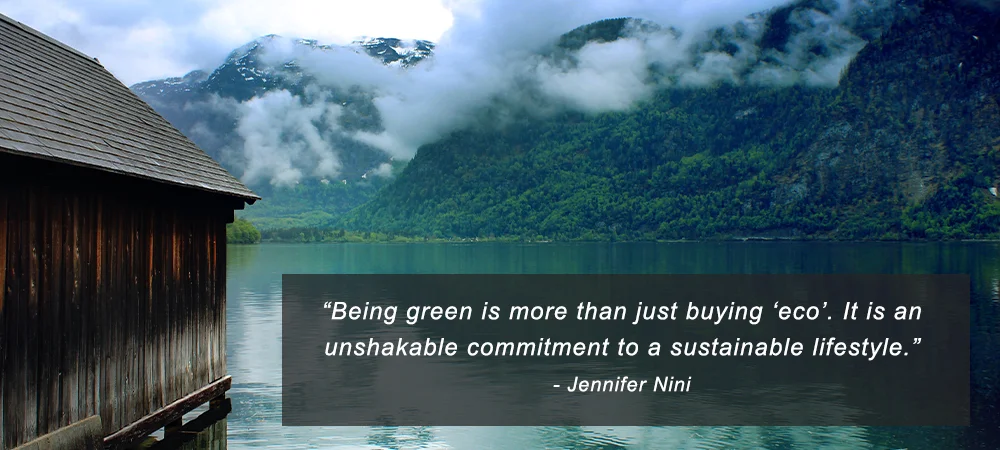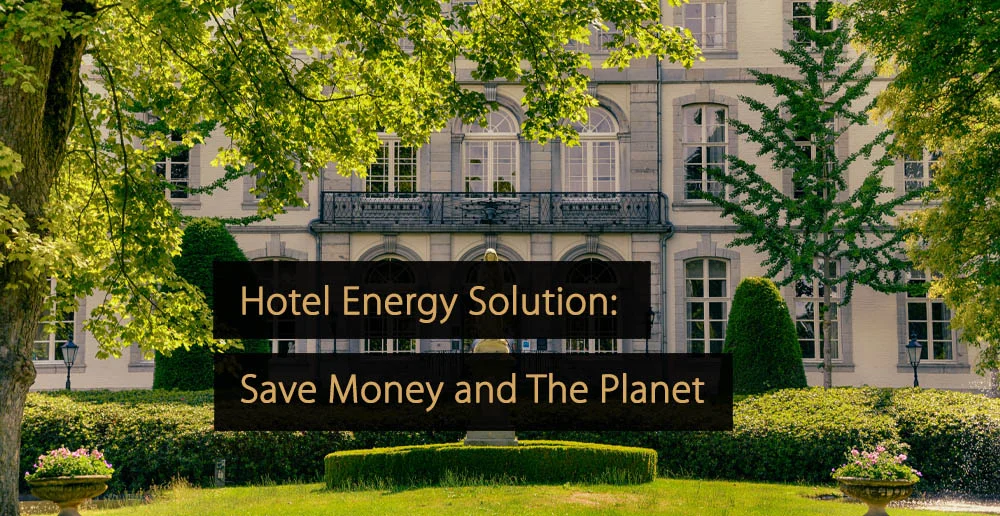One of the growing trends within the tourism industry is the growth of ecotourism, which centers on ecological conservation. However, to fully understand this concept, looking at the advantages and disadvantages and some real-world examples of ecotourism in action is essential.
Table of Contents:
- What is Ecotourism?
- What Are the Principles of Ecotourism?
- What is the Difference Between Ecotourism and Sustainable Tourism?
- Why is Ecotourism Important?
- Different Types of Ecotourism
- What Are the Advantages of Ecotourism?
- What Are the Disadvantages of Ecotourism?
- 8 Ecotourism Examples
- 2 Video’s Explaining Ecotourism
- Tourism Trends and Opportunities
- Destination Marketing Strategies
- Understanding Tourism Management
- Find Courses in Ecotourism
- An Overview of Tourism Jobs
- Ecotourism and Sustainable Tourism Development
- The Growth of Slow Tourism
What Is Ecotourism?
Ecotourism is a form of tourism based on organizing travel to places of natural beauty but in a way that avoids damaging the environment while also helping local people. It can be viewed as limiting the damage caused by traveling to natural areas while trying to leave a positive legacy.
Generally speaking, ecotourism strongly focuses on areas featuring plant life, animal life, and cultural heritage. There is also often an educational component to ecotourism, with travelers aiming to learn something from their trip and give something back to the people in the area.
Ecotourism is a kind of responsible tourism and is especially popular with environmentalists and those concerned with protecting the natural world. Another key aim of ecotourism is to minimize negative consequences that may be linked to a human presence in locations of natural beauty so that future generations can enjoy them too. It is a rapidly growing market – according to the Ecotourism Global Market Report by Research and Markets, the global ecotourism market is forecasted to grow to $331.62 billon by 2027.
What Are the Principles of Ecotourism?
There are a number of core principles that those who participate in ecotourism and those involved in relevant tourism marketing efforts should stick to. These can be summarised as follows:
- Minimize tourism’s negative physical, social, and behavioral impacts on natural areas.
- Generate environmental awareness and respect for local culture.
- Provide financial benefits and positive experiences for local individuals and businesses.
- Deliver positive, memorable experiences for visitors traveling to places of natural beauty.
- Work in partnership with indigenous people and recognize their rights, customs, and beliefs.
Responsibility for delivering the benefits for local people and businesses should fall on travelers themselves, as well as companies that are selling ecotourism products and services.
What is the Difference Between Ecotourism and Sustainable Tourism?
The concepts of ecotourism and sustainable tourism or green tourism share some similarities, including a focus on environmentally responsible travel. However, there are some significant differences, too, and marketers, providers, and travelers must fully understand these differences.
Ecotourism focuses on travel to areas of natural beauty, combined with nature conservation and benefiting the local community. By contrast, sustainable tourism focuses on sustainability and making travel less harmful. As a result, sustainable tourism can include a greater number of different types of travel to a wider variety of locations. In contrast, ecotourism has a narrower focus on nature and conservation efforts.
Table: Differences Between Ecotourism and Sustainable Tourism
| Aspect | Ecotourism | Sustainable Tourism |
|---|---|---|
| Focus | Ecotourism places a primary emphasis on nature and wildlife conservation. It is geared towards preserving natural environments, protecting endangered species, and promoting biodiversity. Ecotourism destinations often have strict regulations to minimize human impact on fragile ecosystems. | Sustainable tourism takes a broader approach, considering both environmental, social, and economic factors. It aims to strike a balance between the three pillars of sustainability—environmental, social, and economic sustainability. This means that while environmental protection is important, it is not the sole focus; cultural preservation and economic benefits to local communities are also key considerations. |
| Environmental Impact | Ecotourism strives to minimize its environmental impact by promoting low-impact activities and responsible behavior. This includes practices like staying on designated paths, using eco-friendly transportation, and reducing waste. The primary goal is to leave natural habitats and ecosystems undisturbed. | Sustainable tourism also aims to minimize its environmental impact, but it does so while considering a broader set of sustainability principles. This may involve supporting renewable energy, implementing waste reduction programs, and conserving natural resources, all while ensuring the economic viability of the destination. |
| Activities and Engagement | In ecotourism, activities are nature-based and often involve educational experiences. Tourists engage in wildlife observation, nature walks, and conservation efforts. Local communities are often integral to ecotourism initiatives, with visitors contributing to community development and participating in cultural exchanges. | Sustainable tourism offers a wider range of activities that go beyond nature-based experiences. Travelers can explore local culture, traditions, and heritage. Engaging with local communities and supporting their businesses is a common practice, ensuring that the economic benefits of tourism are distributed equitably among residents. |
Why Is Ecotourism Important?
Ecotourism is important because companies and individuals who abide by the core principles and prioritize ecology and education within their travel habits help benefit local people and the world. According to the Ecotourism Market Report by imarc Group, the ecotourism market growth rate 2024-2032 is 12%.
Traditional tourism can place a huge strain on destinations because it increases the number of people who are active in that location and who are reliant on its resources. At the same time, it can encourage the destruction of the natural world as businesses strive to keep up with ever-increasing demand levels.
Companies that market and sell ecotourism products and services help educate travelers about the negative consequences associated with many other forms of tourism, which can assist with conservation efforts. Environmental tourism is also a growing trend, and ecotourism helps cater to this trend while providing jobs.
Different Types of Ecotourism
Ecotourism can take many different forms, but there are four main types, as outlined below:
Mutually Beneficial Community Development Trips
Many instances of ecotourism can be described as being based on community development. Often, this will mean a traveler goes to a developing country or a poorer community and experiences life while also engaging in activities or project work intended to benefit local residents.
Traveling to these communities helps their local economy, while the project work benefits those living there. The traveler benefits from an authentic experience of local culture, traditions, and ways of living.
Eco Lodging and Low Impact Accommodation
Eco lodging refers to accommodation designed and developed to impact the surrounding natural environment as little as possible. Accommodation of this kind can take many forms, including huts, tents, and houses, and their location is chosen to minimize disruption to local wildlife and local people.
Generally, accommodation that falls into this category will be built using ethically sourced materials. Care will be taken to limit the extent to which local resources are used for water and energy.
Eco Trekking and Activity-Based Ecotourism
Eco trekking and other similar ecotourism types can be considered active educational travel, combining physical activities with a wider purpose. Travelers participate in hiking, climbing, nature walking, water-based activities, etc., which are carried out while causing minimal disruption to the local environment.
The activity will be combined with educational experiences, teaching travelers about the area and its culture. Companies offering eco treks may donate some of their profits to help local causes.
Agritourism and a Focus on Rural Communities
Finally, agritourism is a form of tourism centered around agricultural activities and rural communities. It will typically consist of travelers visiting rural areas and actively participating in local life and culture, allowing them to experience life in different parts of the world.
As part of the trip, travelers may help with local farming tasks or contribute to the local economy in other ways. This then assists the development and financial health of the rural community.
What Are the Advantages of Ecotourism?
Perhaps the biggest advantage of ecotourism is that it encourages travelers and businesses operating in the tourism industry to become more mindful of nature and more committed to adopting sustainable and helpful behaviors that can limit the damage caused by tourism activities.
It can provide jobs and an economic boost for areas that need investment while avoiding using valuable resources, leading to improved living standards. Moreover, ecotourism activities can help incentivize governments, businesses, charitable organizations, and others to take conservation efforts seriously.
The educational aspect of ecotourism can also lead to travelers adopting positive behavior in their everyday lives, such as by making a more conscious effort to assist with conservation and sustainability. Meanwhile, tourists in areas that have not historically been tourist hot spots can help locals learn new skills.
For travel companies, ecotourism products are also easier to sell to environmentally conscious travelers.
What Are the Disadvantages of Ecotourism?
While the motives that drive ecotourism are positive, disadvantages can also be associated with the practice. For instance, while ecotourism does help to provide jobs for people living in the chosen tourist areas, many of these jobs may be unsteady or seasonal in nature, meaning there may be times of the year with no work.
Even when steps are taken to minimize the damage caused by tourism, there is likely to be an increase in carbon emissions in the area as tourists bring vehicles. The benefits created through ecotourism may not be distributed evenly or fairly, which can increase inequality, while over-tourism is still possible.
Despite efforts to avoid causing a negative impact on the natural world, ecotourism also has the potential to make certain destinations much more popular for visitors. Eventually, this will likely lead to some of the traditional problems with tourism manifesting, including the displacement of wildlife or indigenous people.
8 Ecotourism Examples
A good way to improve your understanding of ecotourism is to look at real-life examples. In this section, you will find eight specific examples and what they offer tourists and locals.
1. Trash Hero Cleanup Programmes
Trash Hero is a volunteer-led movement that began in Thailand but is now global. The project supports local action groups and offers hands-on education about everyday waste’s impact on the environment and nature. Through community-based projects, which include tourists, Trash Hero aims to remove existing waste through clean-up programs and increase awareness of the main issues so that people adjust their behaviors.
2. Crystal Creek Meadows
Crystal Creek Meadows is an eco-friendly luxury accommodation in Kangaroo Valley, Australia. The property has earned sustainable tourism certification and tries to protect and regenerate native species in the area through tree planting. Ecotourism is made possible through various conservation and sustainability activities and lessons, which become available to guests in luxury eco-cottages.
3. Ecotourism in Bhutan
The Kingdom of Bhutan is situated in South Asia, and its mountainous terrain and Buddhist traditions give it a clear appeal to hikers and culture lovers alike. The country’s tourism industry has a natural tendency towards ecotourism because there is a “high value, low impact” policy. While this has been criticized in some circles for only attracting wealthy tourists, its strict limits on tourist numbers and its daily tariff also help with conservation.
4. Summit Expeditions & Nomadic Experiences
Many tourism companies around the world offer summit expeditions that have ecotourism qualities. Typically, this means sustainable expeditions to summits like Kilimanjaro, where the most popular routes are left alone to regenerate, and every effort is made to avoid unnecessary damage. Plenty of companies also offer sustainable nomadic experiences, taking relevant measures to limit negative impacts.
5. Taronga Conservation Society Australia
Another example of ecotourism in Australia comes in the form of the Taronga Conservation Society Australia. The society offers a range of educational options for visitors interested in learning about wildlife conservation, along with up-close encounters with animals. The money generated is used to help fund breed and release programs, nature recovery programs, and ongoing efforts to protect native species and their natural living environments.
6. Volunteering in Belize’s Rainforests
Finally, another excellent ecotourism opportunity involves volunteering to help conservation groups working in the rainforests of Belize. All efforts are carried out while respecting the local population, and strict guidelines are in place to assist volunteer groups with their efforts to protect the rainforest. However, it should be noted that spaces are limited, and volunteers must pass stringent checks before participating.
7. Costa Rica Nature Parks
Another popular destination for ecotourism is Costa Rica, which is a country with an abundance of nature parks. Within these parks are everything from rainforests to beaches and mountain ranges, allowing visitors to enjoy the various natural wonders. Also, nature reserves help showcase some of the country’s indigenous wildlife. The Costa Rican government is keen to protect the country’s natural offerings from some of the negative side effects of tourism, so there are restrictions designed to mitigate this threat and reduce the potential for harm. Some of the country’s natural areas are protected areas, which can only be visited by a few people.
Video: Costa Rica Nature Parks
8. Palau Islands
The Republic of Palau has an innovative approach to ecotourism and protecting its natural features. In 2017, the country introduced a ‘Palau Pledge,’ requiring international visitors to agree that they will preserve and protect the islands for the benefit of future generations living there.
Beyond this, the country recently introduced a new way to ‘gamify’ ecotourism through a mobile app that rewards good tourism practices. By engaging in responsible tourism activities, like eating sustainable local foods or learning about the culture, visitors can unlock rewards, like free activities.
Video: Palau: Best in Travel 2021 Sustainable Islands
2 Video’s Explaining Ecotourism
Below you find two videos explaining more about Ecotourism.
Video: What is Ecotourism
How would you describe Ecotourism’s three guiding principles? Tourism that preserves the environment and helps local people is the theme of our subject knowledge animation.
Video: Ecotourism – A Sustainable Way To Travel
Learn more about ecotourism and why going green on the road is important! When you travel sustainably, you can observe a place, its people, and its culture up close. You get to experience the locals’ way of life and learn more about a place by participating in their activities.
Tourism Trends and Opportunities
Ecotourism is a good example of a growing tourism trend, but there are plenty of others to be aware of. These include an increased focus on hygiene, a renewed focus on local customers, the rise of voice search and virtual reality, the growing need to provide personalization, and the wider use of artificial intelligence.
You can explore all of these trends, learn more about what is driving them, and find out more about a variety of other trends by reading the “Tourism Trends: The Latest Opportunities for The Tourism Industry” article.
Destination Marketing Strategies
The concept of ecotourism goes hand-in-hand with destination marketing. Simply put, this is the process of marketing a destination to customers, highlighting the things to do there and the experiences that can be enjoyed. This is often the responsibility of a destination marketing organization or a tourist board, but businesses can also carry it out.
If you want to learn more about destination marketing, what it is, why it is important, and some of the main destination marketing strategies, read “Destination Marketing Strategies to Attract More Visitors”.
Understanding Tourism Management
Working within the tourism management field requires a deep understanding of the concept of ecotourism and all aspects of the tourism industry as a whole. After all, tourism management means overseeing core business functions, managing staff, financial planning, training, coaching, staying up-to-date with trends, and more.
The “Tourism Management: All You Need to Know About Tourism” article goes into far more depth about the nature of tourism management, what it involves, the level of education required, and the different tourism sectors.
Find Courses in Ecotourism
Ecotourism is a complicated subject with a lot of depth to it, and there are specific courses that can teach you more and help you find work within this particular industry sector. Alternatively, a wide variety of other courses can help you increase your understanding of tourism and develop new skills.
Read “Tourism Course: A Complete Overview of Courses & Tourism Educators” to learn about some of the available main course types and resources for finding and applying for these programs.
An Overview of Tourism Jobs
The field of ecotourism provides a range of career options, and even more paths are available within the wider tourism industry too. Suppose you are interested in working in the industry. In that case, it is important to use the right channels to explore vacancies, and dedicated tourism job boards represent one of the best options.
Take a look at “Tourism Jobs: The Best Tourism Industry Job Boards for Your Career” for an overview of the main job boards covering different sectors, along with information about other channels to try.
Ecotourism and Sustainable Tourism Development
Ecotourism is just one example of sustainable tourism, and for tourism in a particular location to be sustainable, the right steps need to be followed. The actions that are taken to create, manage, and maintain a sustainable industry in a particular part of the world are called sustainable tourism development, and it is crucial to understand this process.
Read our article, “Benefits of Sustainable Tourism Development”, where you can explore the topic of sustainable tourism, learn about tourism development of this kind, and learn more about the main plus points and incentives.
The Growth of Slow Tourism
The concept of ecotourism can be further developed by promoting slow tourism. This approach to tourism encourages travelers to slow down, avoid attempts to cram as many travel experiences into their trip as possible, and instead focus on a more sustainable form of travel based on meaningful engagement with the area and its culture.
You can explore the topic of slow tourism in further detail, including learning about the definition and some specific examples, by reading the “Slow Tourism: What It Is, Its Importance, and Examples” article.
Ecotourism FAQs
Ecotourism is a kind of tourism that focuses on travel to areas of natural beauty to aid conservation and minimize the negative consequences of travel. Companies selling ecotourism products and services often contribute to local causes, while travelers gain unique experiences and become more educated.
Did You Like This Article About Ecotourism?
You might also be interested in the following articles:
- Hotel Energy Solution: Save Money and The Planet
- Sustainable Tourism Guide: What is, Why Important, Examples and More…
- Tourism Meaning: Learn About the Definition of the Tourism Industry
- Tourism Startups Focus on Innovation and Sustainability
- Smart Hotel Technology; Technologies to Smart Up Your Hotel
More Tips to Grow Your Business
Revfine.com is the leading knowledge platform for the hospitality and travel industry. Professionals use our insights, strategies, and actionable tips to get inspired, optimize revenue, innovate processes, and improve customer experience.Explore expert advice on management, marketing, revenue management, operations, software, and technology in our dedicated Hotel, Hospitality, and Travel & Tourism categories.
This article is written by:
Hi, I am Martijn Barten, founder of Revfine.com. With 20 years of experience in the hospitality industry, I specialize in optimizing revenue by combining revenue management with marketing strategies. I have successfully developed, implemented, and managed revenue management and marketing strategies for individual properties and multi-property portfolios.











Wonderful article about ecotourism. Greetings from Chile.